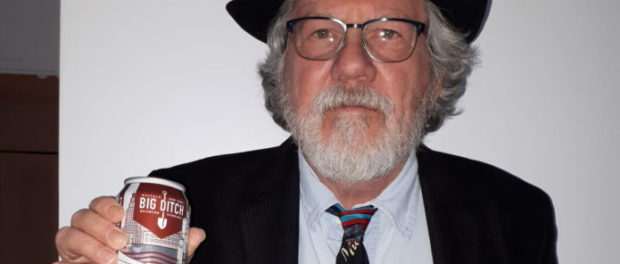Montreal Then: When Pop Culture Came to Montreal, or Superman Never Says…….. “Ouch”
 After decades of teaching, Zsolt Alapi is a born-again writer, editor, publisher, who has made his home in Montreal for over four decades.
After decades of teaching, Zsolt Alapi is a born-again writer, editor, publisher, who has made his home in Montreal for over four decades.
Written by Zsolt Alapi
Long before the days of Comiccon, gaming, social media, and long before university English departments had split into two wings, one being literature and the other being “Cultural Studies,” the great American critic, Leslie Fiedler, one of the first postmodern critics to break away from the New Critical tradition, was writing and lecturing on genre literature, science fiction in particular, but also undertaking a foray into pop culture criticism.
In 1973, he wrote Beyond the Looking Glass, a study of fantasy and fairy tales, in which he also introduced the idea of the comic book hero as pop cultural icon. In the early 1980s, I had the pleasure of attending his lecture at the Loyola Campus of Concordia University that dealt with the topic of the comic book superhero as the perpetuation of the heroic ideal, dating back to Homer.
A brilliant lecturer, Fiedler talked in particular about Superman as the embodiment of the hero with his one flaw (allergy to Kryptonite) that raised him to potentially tragic stature.
After the lecture, I thought back on my grammar school days and a game one of my peers, a young thug named David Melchow, always used to play. He would come up close to you and yell, “Superman never says…” and then would drive his fist into either your solar plexus or your shoulder, as close to the bone as possible. If you survived the blow, you would either yell “OUCH” or some more colorful invective.
But having even back then a philosophical bent, there were several things about Superman that bothered me. Sure, he was all that we as kids wanted to be: powerful, invincible, handsome, and admired, but he was also a paragon of moral virtue. Fiedler had claimed that Superman was a symbol for our most sacred Judeo-Christian values: doing right by others, fighting evil, and working for the good of mankind.
There was also the question of his super powers, such as X-ray vision. The comic books back then had ads for X-ray vision glasses, showing a guy on a beach looking intently at the women in bikinis. If Superman had this power, would he not be tempted to look at women’s bodies under their clothes every chance he had?
But clearly I was an ordinary mortal with impure thoughts that fed into my guilt for even thinking about such things. Superman, on the other hand, seemed beyond this. Here was one hero dominated by his Superego.
Even more profound concerns bothered me. I had, after all, just entered puberty, and I wondered if Superman could have sex. I knew enough about the act, thanks to my thug classmate, to know that sex required the insertion of the penis into some orifice, moving it back and forth, and finally ejaculating to make babies.
But how could the Man of Steel achieve this? Lois Lane was hot, of course, and perhaps he had even done some heavy petting with Lana Lang back in high school, so he could obviously become aroused.
But what then? What about the act of penetration? Would this kill Lois because of the force of his spending? Would it catapult her into outer space? And how could he feel pleasure if he was invincible?
Sure, he could give Lois a good ride, what with his super speed and all and a dick that could move faster than a speeding bullet, but how could he come? And did he use a condom that was coated with Kryptonite, and wouldn’t that make his super dick go limp? Also, was he circumcised, and, if so, who had done it, and how? Names like Jor-El and Kal-El suggested Hebrew or Semitic ancestry. I had read those fantasy episodes where he and Lois get married, set up house with little super-brats in tiny costumes flying about wrecking havoc, but how had this happened?
And what about the proverbial 69 position? Obviously, Lois would be enraptured by the blurring speed of his super tongue, screaming out in orgasmic delight, but what if she reciprocated too eagerly? Would his Rod of Steel knock her teeth out, necessitating dentures? And would Lois still be attractive then, or would Superman take up with his old flame, Lana, who in later episodes moves to Metropolis?
Perhaps this was Superman’s second tragic flaw: to be doomed to a life of heroic deeds and celibacy, all for having a cast iron cock.
Too many unanswered questions came to haunt me for a good portion of my youth.
Thinking about this makes me go to my bookshelves where I take down one of Fiedler’s most important works: No! In Thunder: Essays on Myth and Literature. In that collection is an essay called“Come Back to the Raft Ag’in, Huck Honey” where Fiedler slyly insinuates that Huck and Jim’s nakedness on the raft imply homoerotic encounters cloaked under the guise of innocence, symbolized by the purity of the vast river waterway they travel: the mighty Mississippi.
And I silently give thanks again for the texture of literature that provides such a rich tapestry for the imagination.





